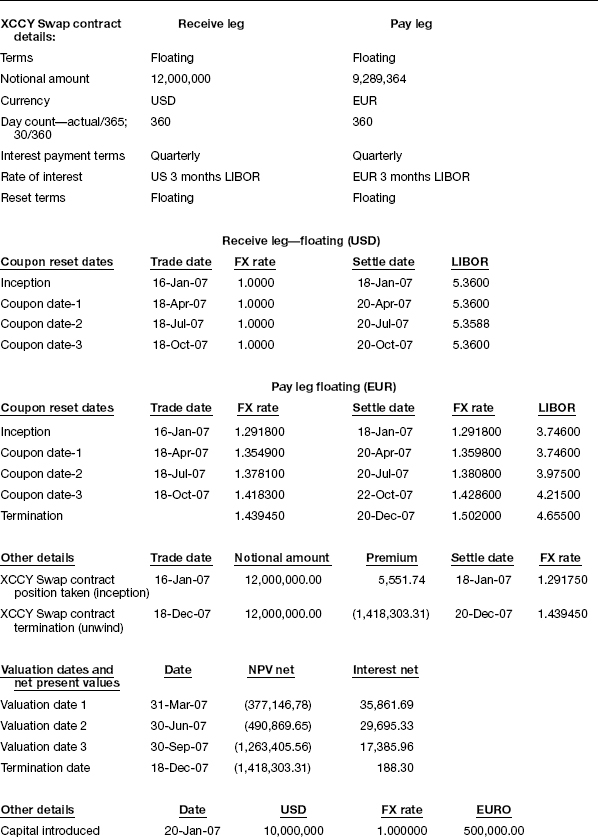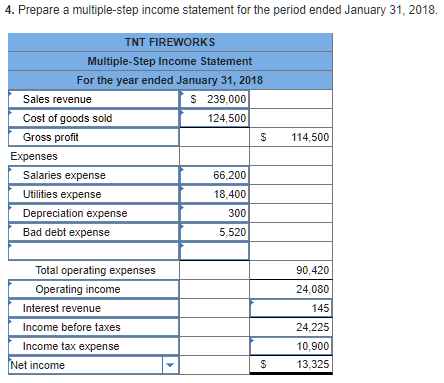How to File Back Taxes for a Small Business

If you fail to file your tax returns, you may face IRS penalties and interest from the date your taxes were. It can take up to 21 days to receive your refund when you file a previous year tax return for the first time electronically. Amended returns, on the other hand, take up to six weeks if the return is mailed, or about two weeks if the return is filed electronically. Timeframes may change depending on what time of year you file.
When tax bills are delinquent or overdue, typically from previous years, they are referred to as back taxes. The IRS begins to charge penalties and interest on late or unpaid taxes the day after the tax-filing deadline for that year. If the bill remains unpaid, notices will follow and the agency may eventually begin other collection measures. Whether you’re behind on a tax bill or need to collect a refund from an unfiled prior-year return, here’s a quick-start guide to back taxes and how to file past-due tax returns. If you don’t file your back taxes, the IRS has authorization through Sec. 6020 to prepare a substitute return on your behalf. They will notify you first of their intent to do so, and give you an opportunity to respond.
Regardless of the cause, missing your filing due date will result in the IRS tacking on interest and penalties, increasing your tax liability. When you do get behind on your taxes, you can minimize the damage by taking steps to file your back tax returns as soon as possible. The sooner you file your late tax returns, the sooner you can put this stressful situation behind you—and put an end to the accrual of fees and penalties. Remember that the penalties, interest, and actions taken by the IRS to recover what you owe will only increase as time passes. You may be able to fill out past-due tax returns through online software or with an accountant, but you’ll need to print the forms and mail them to the IRS. If you think you might owe the IRS when you file your tax return this year or next, consider making estimated tax payments in advance.
What to know about Buy Now, Pay Later loans before using them
Depending on the situation, if a deceased person has unfiled returns, you may need to file them. Check out our guide to tax debts for deceased taxpayers to learn more. Accordingly, in most cases, it’s in the taxpayer’s best interest to file their own return to take advantage of any exemptions, credits, and deductions they’re entitled to receive. Generally, if the IRS files taxes on your behalf, the SFR tax forms won’t include any credits or exemptions. Filing taxes for previous years can help reduce any penalties or interest you may owe if you were required to file taxes in previous years but did not.
- Remember, prior-year tax returns cannot be electronically filed anywhere.
- If you can’t pay the bill, don’t put off filing your tax return.
- Nevertheless, many people don’t file taxes for even 10 years.
- Create a plan for paying off your tax debts if it turns out that you owe the IRS money.
For example, someone who was not filing taxes for 2 years can still claim a tax refund for those two years. In contrast, someone with 5 years of unfiled tax returns can only claim a refund for the three most recent years. You can prepare and e-file your current Tax Year Return on eFile.com regardless of when you mail your back tax return.
These payments are generally required for sole proprietors who aren’t subject to withholding from their paychecks by an employer. Making quarterly estimated tax payments can help you to avoid penalties on your upcoming tax return. In this blog post, we’ll discuss how far back the Internal Revenue Service (IRS) allows you to file taxes and what strategies make the most financial sense when tackling past-due tax returns. The IRS assesses another penalty for a failure to pay your taxes owed. These fees will accrue until your balance is paid in full or the penalty reaches 25% of your tax, whichever comes first. In most cases, if you didn’t file a previous year’s tax return, you can do it retroactively.
Refunds
The IRS statute of limitations for collection purposes is 10 years from the date the taxes are assessed. But then, a few months later, the taxpayer prepares and files their version of the return. If the balance due decreases, the collection statute of limitations stays the same. If you have three years of unfiled tax returns, you can claim the refunds for all three years. However, if you owe taxes, the IRS goes back a lot further than three years. Losing out on your tax refund is just one of the consequences of unfiled tax returns.
Missed the April 18 filing deadline? File now to limit penalties and … – IRS
Missed the April 18 filing deadline? File now to limit penalties and ….
Posted: Tue, 18 Apr 2023 07:00:00 GMT [source]
You can file a claim for refund for a tax year where unresolved tax matters are pending. This is a protective claim and is done to preserve your statute of limitations when you’re expecting a refund. If you happened to file for a tax extension by the original tax deadline, you’ll only have to worry about the failure to pay penalty if you owe. As a result, it’s almost guaranteed that you’ll owe more with an SFR than you would if you prepare your own tax return (or get help from a professional). Whenever possible, you’re better off filing back taxes on your own (or with the help of a qualified tax professional). Below, we’ll explain the benefits of getting caught up on your back taxes and how to file them.
Many or all of the products featured here are from our partners who compensate us. This influences which products we write about and where and how the product appears on a page. We believe everyone should be able to make financial decisions with confidence. Catching up on years of bookkeeping can be daunting, so if it’s more than you can handle on your own consider hiring a professional or outsourcing the work to a service like Bench Retro.
How Many Years of Back Taxes Do I Need to File?
Foremost, collect all relevant documentation for each tax year. Do not include Social Security numbers or any personal or confidential information. We cannot guarantee the accuracy of this translation and shall not be liable for any inaccurate information or changes in the page layout resulting from the translation application tool.
For example, if you’re filing your 2021 tax return, you’ll need your W-2, 1099s and any other pertinent documents from 2021. Our tax-prep checklist covers additional information you may need to access. One reason many business owners get behind in their taxes is an inability to afford them. Remember that even if you can’t pay in full, you can still make partial payments that will decrease your overall debt from penalties and interest. You have 30 days after receipt of the letter to send in a completed return. Your other options are to send in IRS Form 870-Consent to Assessment and Collection form or a statement explaining why you aren’t required to file a return.
Forgot to File Your 2019 Taxes? You Still Can if You Want Your … – The New York Times
Forgot to File Your 2019 Taxes? You Still Can if You Want Your ….
Posted: Fri, 28 Apr 2023 07:00:00 GMT [source]
Since the IRS may not have complete information about a taxpayer, it may go ahead and prepare the SFR for the taxpayer and overstate their taxes owed. This often leads to owing more taxes or receiving less refund than if you had filed your own tax forms. You can e-file your current Tax Return on time here on eFile.com until Tax Day. If you owe taxes, you might be subject to late filing and late payment fees if you wait until after the deadline to e-file your return. Additionally, consider filing a tax extension and e-file your return by the October deadline.
Filing Back Tax Returns
The IRS’s return also omits cost-saving tax credits your small business may be eligible for. There is a 10-year statute of limitations on the IRS for collecting taxes. This means that the IRS has 10 years after assessment to collect any taxes you owe.

It’s very possible that you have forgotten or missed a filing deadline with the IRS, and nothing happened. However, it would be a mistake to think that the IRS did not notice. Your employer must report your income to the IRS, and they know if your income is above or below the filing threshold. They may not catch up to you right away, but if you miss multiple years they will start by sending you mailed notices about your delinquent taxes. If you’re behind on your taxes because you can’t afford them, several tax relief options are available, including offers in compromise, penalty abatement and payment plans.
For taxpayers who file an Offer in Compromise (OIC)[2], the CSED will be extended for its duration plus an additional 30 days. Nevertheless, the IRS can’t take those kinds of actions against everyone because they don’t have enough resources. The web pages currently in English on the FTB website are the official and accurate source for tax information and services we provide. Any differences created in the translation are not binding on the FTB and have no legal effect for compliance or enforcement purposes. If you have any questions related to the information contained in the translation, refer to the English version. We’ll process the informal claim as a formal claim when the full amount due has been paid.
When you hire a tax professional to help with your back taxes, they can file your unfiled returns, but they can also help you deal with any taxes that you owe. Dealing with the IRS on your own can be stressful and confusing. How many years can you file back taxes They understand the tax code, the IRS rules about unfiled taxes, and the resolution options. An experienced tax pro can get you the best result for your situation — that’s where the W Tax Group comes in.
Remember, you can file back taxes with the IRS at any time, but if you want to claim a refund for one of those years, you should file within three years. If you want to stay in good standing with the IRS, you should file back taxes within six years. It takes about six weeks for the IRS to process accurately completed back tax returns. It involves reaching an agreement with the IRS to pay less than your full balance due. An offer in compromise is typically only approved if you’re unable to pay through an installment plan and comes with an application fee.
Unfortunately, if you are owed a tax refund, the IRS will only pay you up to three years past the due date. You must establish that you cannot pay your balance through an installment agreement or by any other means. There might not be a hard limit to how many years you have to file back taxes, but that’s not to say that the IRS doesn’t want your returns sooner rather than later. You must have filed tax returns for the last six years to be considered in “good standing” with the IRS. And if you want to claim a tax refund for a past year, you’ll need to file within three years. One practical reason to file a back tax return is to see if the IRS owes you a tax refund.
However, if you lost your tax records or just haven’t been diligent about keeping your records, this might take a little more work. In most cases, you have three years from the tax return’s original due date to file a return and claim a refund. If you miss that window, your refund becomes property of the U.S.
When you contact the IRS about your back taxes, you can also request and receive your wage and income transcripts for those unfiled years. If an assessment of taxes has already been directed to your account, you should request additional time to file for those unfiled years. The longer you wait to deal with unfiled returns, the more likely you become to face unwanted collection actions from the IRS. If you don’t file back taxes, the IRS may file a substitute tax return for you. They won’t worry about claiming any tax credits or deductions that you might be entitled to.
